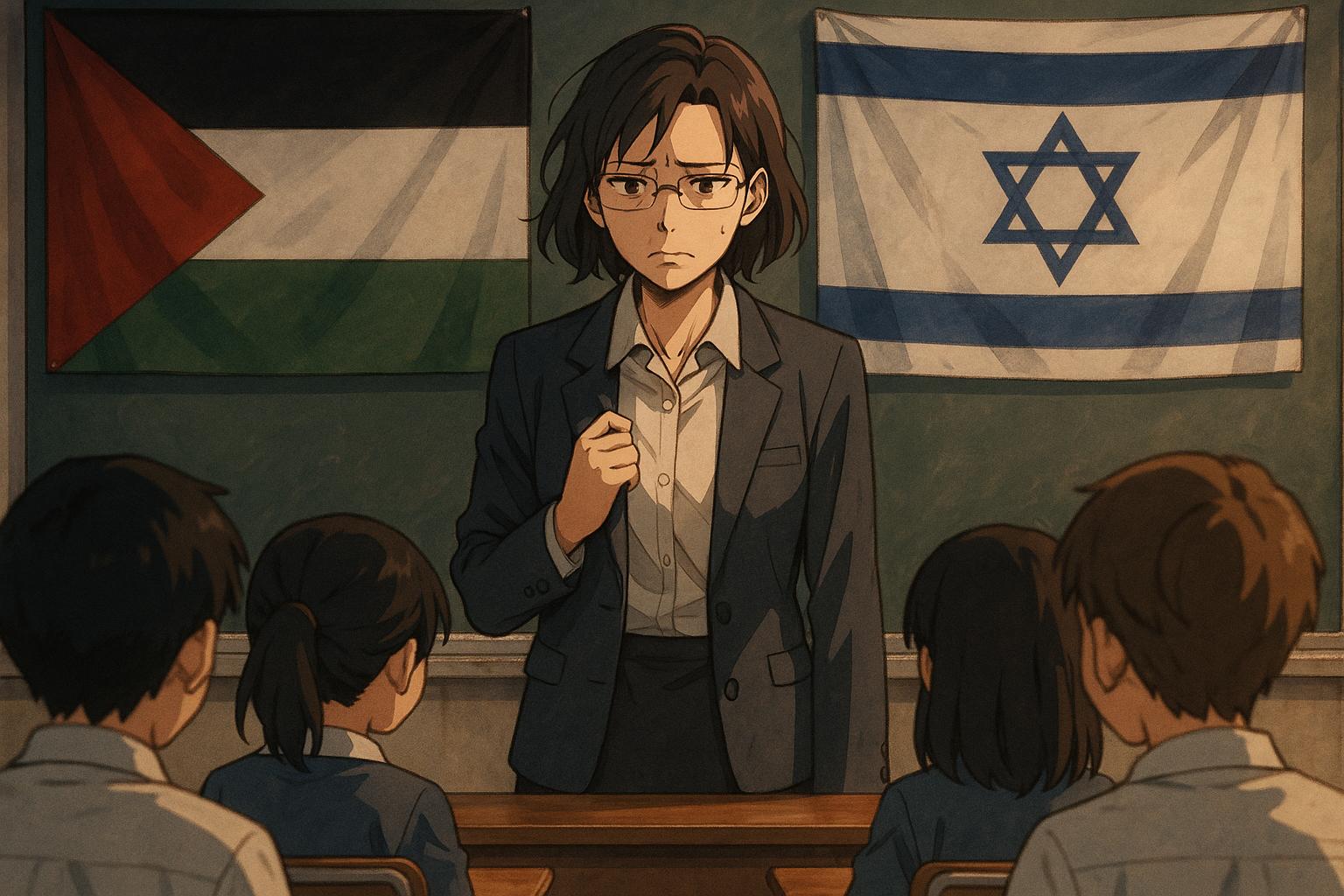Critics have raised concerns over the National Education Union's (NEU) promotion of pro-Palestinian activism in schools, following its announcement encouraging members to integrate discussions on the "Palestinian struggle for freedom" into educational settings. The union has invited teachers to participate in a day of action aimed at raising awareness about the Palestinian experience, coinciding with Nakba Day, which marks the displacement of Palestinians during the establishment of Israel in 1948.
This initiative includes a workshop scheduled for next month, organised by Makan, a group focused on educational approaches that delve into Palestinian history. Attendees will learn to discuss sensitive topics such as settler colonialism and the implications of apartheid. However, critics fear this training may lead to biased teaching, undermining the principle of political impartiality mandated in the UK’s education system.
Legal experts from UK Lawyers for Israel (UKLFI) have voiced alarm over the NEU's actions, arguing that they push a one-sided agenda that could infringe upon statutory guidelines designed to prevent political bias in schools. Caroline Turner, director of UKLFI, articulated concerns that teachers would be misusing their positions to promote specific political ideologies to impressionable students, stating that the NEU's activities could represent an attempt to "brainwash children into supporting the Palestinian cause.”
In response to escalating criticism, Liverpool City Council announced plans to remind educators of their obligations regarding impartiality in teaching, while still affirming teachers’ rights to engage in protests outside school hours. Reena Bhogal-Welsh, the city's director of education, confirmed that letters would be dispatched to schools to clarify the limits on political discourse within educational contexts.
The NEU, however, defends its role in advocating for Palestinian issues. A representative stated that the June event aims to equip teachers with the necessary tools to handle conversations around the ongoing conflict sensitively, thereby supporting pupils or staff affected by the issues at hand. The union stresses that any discussions should be conducted in a respectful and balanced manner, as it tries to navigate the tensions that the situation fosters among student populations.
The controversy surrounding the NEU is not new. Allegations have emerged in the past suggesting the union's financial connections with groups suspected of supporting or endorsing violent extremism, such as the General Union of Palestinian Teachers (GUPT). Reports indicate that NEU officials have visited the West Bank to engage with GUPT representatives, further complicating their stance amidst accusations of fostering ties with entities that have praised militant actions.
Recent union meetings have also revealed an explicit shift towards anti-Israel sentiment, including votes to sever connections with the defence industry and to endorse educational material championing pro-Palestinian narratives, despite significant backlash from various political and social factions. Such actions have prompted resignations from within the ranks of the NEU, particularly among Jewish members who have cited a perceived rise in antisemitism in relation to the union's activities.
As discussions around the Israel-Palestine conflict continue to polarise opinions, the NEU's initiatives reflect a broader trend where unions grapple with the pressures to take definitive stances on contentious global issues. Amid internal divisions and external critiques, the challenge remains for educational bodies to balance advocacy with the ethical obligation to maintain a politically neutral learning environment for all students.
Reference Map
- Paragraphs 1, 2, 3, 4, 5, 6, 7, 8, 9
Source: Noah Wire Services
